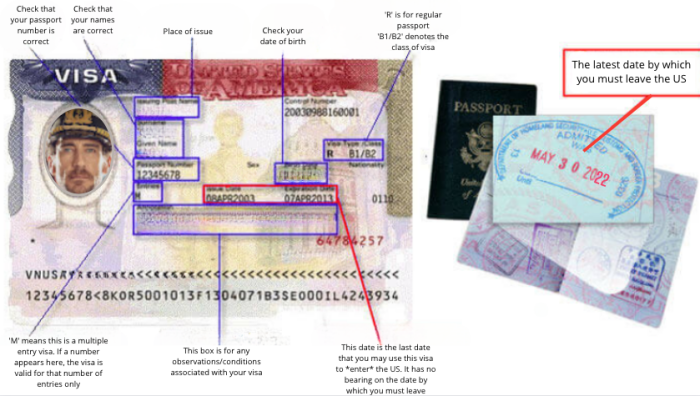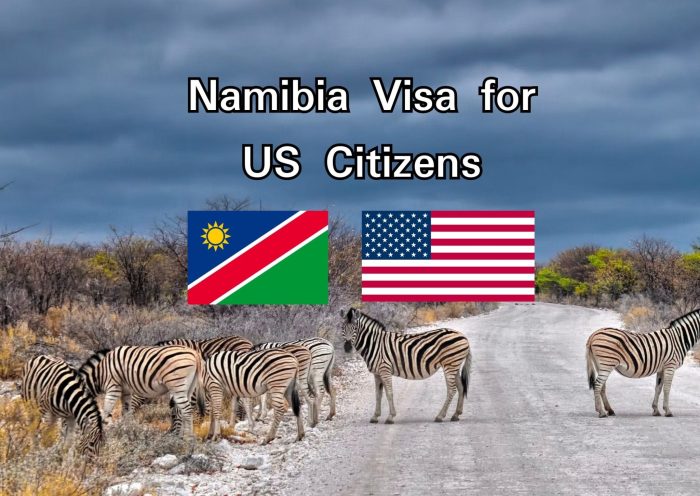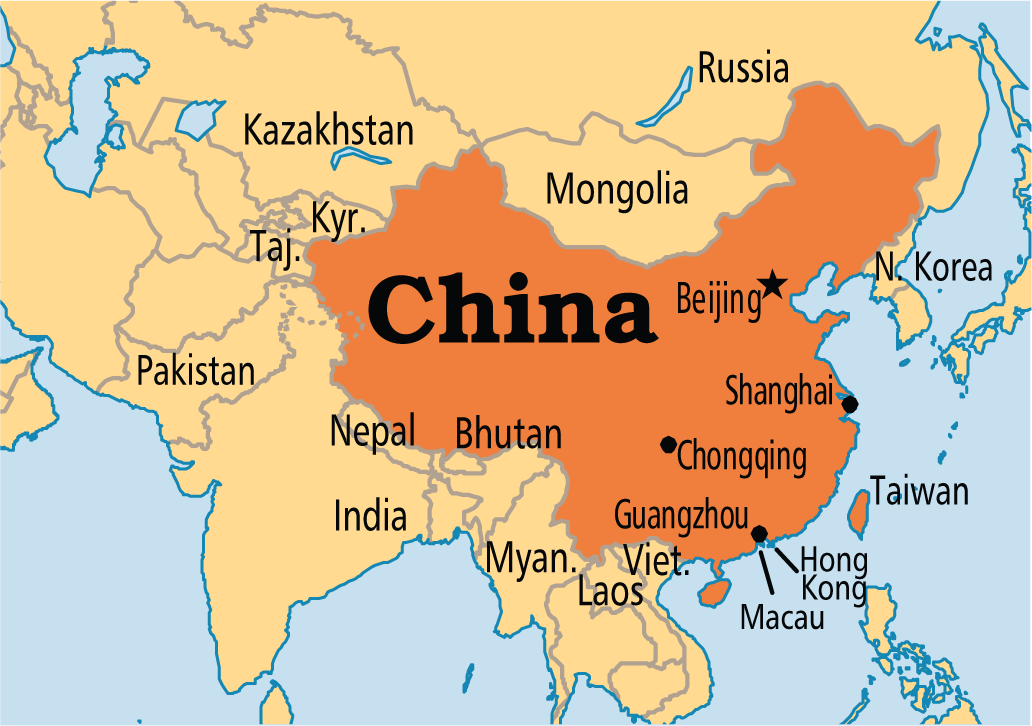Visa requirements for Finland can seem daunting, but this guide breaks down the process into manageable steps. We’ll explore the different visa types available, from tourist visas to work visas, detailing the specific requirements and application procedures. Get ready to navigate the Finnish visa landscape with confidence, knowing exactly what you need to do to secure your trip!
This comprehensive resource covers everything from eligibility criteria and required documents to application fees and processing times. We’ll also highlight important considerations and potential pitfalls to avoid, ensuring a smooth application experience. Let’s dive into the specifics of obtaining a Finnish visa.
Visa Types for Finland
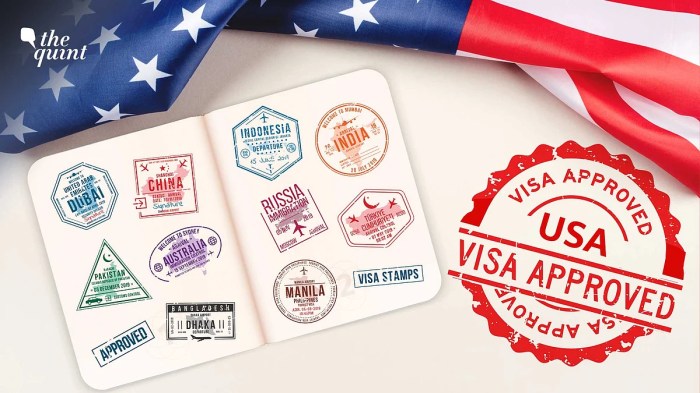
Finland offers various visa categories to cater to different travel purposes. Understanding these categories is crucial for ensuring a smooth and compliant entry process. This guide provides a comprehensive overview of the different visa types, their specific requirements, and their intended uses.
Visa Categories for Finland
Finland’s visa system is designed to accommodate a wide range of travel intentions. From short-term tourism to longer-term work or study, each visa category is meticulously crafted to address specific needs. This detailed exploration clarifies the nuances of each category.
- Short-Stay Visa (Schengen Visa): This is the most common visa type for tourists and those visiting for short-term stays. It allows for visits of up to 90 days within a 180-day period. This visa allows for movement within the Schengen Area, encompassing numerous European countries. The purpose of this visa is primarily leisure or tourism. Examples include visiting friends or family, attending conferences, or short-term business meetings.
- Long-Stay Visa: This visa type is intended for stays exceeding 90 days. It caters to those seeking to study, work, or engage in other activities requiring longer periods in Finland. The exact requirements and documents needed vary significantly depending on the specific purpose of the long-term stay. Examples include students pursuing higher education, workers with employment contracts, or researchers conducting research projects.
- Transit Visa: A transit visa is necessary for individuals who need to pass through Finland on their way to another country. This visa is typically required if the layover or transit duration exceeds the stipulated limit. The purpose of a transit visa is solely to facilitate the traveler’s passage through Finnish territory, not for any other activity.
- Family Reunification Visa: This visa category allows family members to join a Finnish resident or citizen. The process involves demonstrating the family relationship and financial stability to support the applicant’s stay in Finland. Examples include spouses, children, or parents joining Finnish citizens or residents.
Visa Requirements and Processing Times
Different visa types have varying requirements and estimated processing times. Careful consideration of these factors is vital to avoid delays.
| Visa Type | Purpose of Travel | Duration | Processing Time (Estimated) |
|---|---|---|---|
| Short-Stay Visa (Schengen) | Tourism, leisure, visiting friends/family, short business trips | Up to 90 days within a 180-day period | 1-15 business days |
| Long-Stay Visa | Study, work, research, or other activities requiring a longer stay | Exceeding 90 days | 1-2 months or more |
| Transit Visa | Passing through Finland to another country | Duration depends on the layover/transit time | 1-10 business days |
| Family Reunification Visa | Joining a Finnish resident or citizen | Variable, depends on the family member’s status | 2-6 months |
Note: Processing times are estimates and may vary based on individual circumstances, completeness of application, and the current workload of the Finnish authorities. It’s crucial to consult the official Finnish visa website for the most up-to-date and precise information.
Eligibility Criteria
Navigating the Finnish visa application process can feel daunting, but understanding the eligibility criteria and required documents can ease the way. This section details the general requirements for various visa types, helping you prepare a strong application. Knowing the specific criteria and documents for each category is crucial for a successful outcome.Applying for a Finnish visa involves more than just filling out forms.
Thorough preparation and adherence to specific requirements significantly increase your chances of visa approval. This comprehensive overview Artikels the necessary steps and factors to consider for a smooth application process.
General Requirements for Finnish Visas
Meeting the general requirements is the first step towards a successful Finnish visa application. These requirements are broadly applicable to most visa categories, and include but are not limited to the following:
- Valid passport or travel document, with a validity period extending beyond the intended stay in Finland.
- Proof of sufficient funds to cover your expenses during your stay in Finland. This could be bank statements, sponsorship letters, or other relevant financial documentation.
- Confirmation of travel arrangements, such as return or onward tickets.
- Evidence of accommodation arrangements, including hotel bookings or a letter of invitation from a host.
- Completed visa application form, accurately filled and signed.
Visa-Specific Requirements
The exact documents required vary depending on the specific visa type. A crucial aspect of the application process is ensuring you submit all necessary documents.
- Short-stay visa (tourism, visiting friends/family): In addition to the general requirements, you’ll likely need to provide proof of your relationship with the person you’re visiting, including contact information and proof of your ties to your home country (e.g., employment documents, proof of residence). Detailed information on the specific criteria and requirements should be sought directly from the Finnish authorities.
- Long-stay visa (work, study): For work visas, detailed employment contracts and confirmation of the job offer are essential. For study visas, official acceptance letters from Finnish educational institutions are required, along with proof of sufficient funds to cover your studies and living expenses. These specific requirements should be verified with the Finnish embassy or consulate.
- Transit visa: If you are only passing through Finland, you need to demonstrate the purpose of your transit and the onward journey to your final destination. Documentation supporting your onward journey is necessary. For example, a confirmed flight ticket to your next destination is a crucial document.
Factors Influencing Visa Application Outcomes
Several factors can influence the outcome of your visa application. A comprehensive and truthful application package is vital.
- Completeness and accuracy of the application: Thoroughness and attention to detail are critical. Incomplete or inaccurate information may lead to rejection. Each document must be verified for authenticity and relevance.
- Consistency between documents: All the information provided in different documents should be consistent. Inconsistencies may raise red flags.
- Sufficient funds and travel arrangements: Adequate financial resources and confirmed travel plans demonstrate your intention to return to your home country, minimizing the risk of overstaying your visa.
- Prior visa history: A history of overstaying or visa violations can negatively affect your application.
- The purpose and duration of your stay: A clear and convincing explanation of your purpose of visit is vital for a successful application. The length of your stay is also considered.
Comparison of Visa Requirements
This table summarizes the general requirements for different visa categories. It’s important to consult official sources for the most up-to-date and accurate information.
Planning a trip to Finland? Visa requirements can be a bit tricky, but luckily, the process isn’t overly complicated. While you’re researching the specifics, you might also be inspired by North America’s incredible winter destinations, like those featured in north americas most spectacular winter destinations. Ultimately, understanding Finland’s visa policies is key to making the most of your trip.
| Visa Type | Required Documents | Specific Criteria |
|---|---|---|
| Short-stay visa (tourism) | Passport, travel insurance, proof of accommodation, return ticket, funds, application form | Proof of purpose of visit, ties to home country |
| Long-stay visa (work) | Passport, employment contract, proof of accommodation, return ticket, funds, application form, job offer letter | Evidence of employment in Finland, professional qualifications |
| Long-stay visa (study) | Passport, acceptance letter from institution, proof of accommodation, return ticket, funds, application form | Proof of enrollment, financial resources for study and living |
| Transit visa | Passport, onward journey ticket, proof of transit, application form | Proof of onward travel, brief stay in Finland |
Application Process
Navigating the Finnish visa application process can feel daunting, but with a clear understanding of the steps involved, you can make the journey smoother. This section provides a comprehensive guide to help you complete your application successfully. From understanding the online application form to submitting supporting documents, we’ll cover everything you need to know.
Steps Involved in Applying for a Finnish Visa
The application process typically involves several crucial steps. Understanding these steps in advance can help you manage your time effectively and avoid potential delays.
- Gather Required Documents: Before you begin the online application, meticulously collect all the necessary documents. This includes your passport, proof of accommodation, flight bookings, and financial statements. A thorough checklist is highly recommended to ensure you don’t miss any vital paperwork.
- Complete the Online Application Form: The online application form is the initial step in the process. Carefully fill out all the requested information, ensuring accuracy and completeness. Double-checking your details for errors is crucial to avoid rejection due to administrative issues.
- Submit Supporting Documents: After completing the online application, you need to submit the required supporting documents. These documents will verify your eligibility for a Finnish visa. Make sure the documents are organized and easily accessible for the processing team.
- Schedule an Appointment (if applicable): Some visa applications may require an in-person interview at the Finnish embassy or consulate. Schedule the appointment promptly to avoid delays. This appointment is a crucial part of the process, giving you a chance to explain your visit and clarify any concerns.
- Pay the Application Fee: Pay the visa application fee as instructed on the official website. Be mindful of the payment method and deadlines.
- Track Your Application: Once you’ve submitted your application, monitor its progress online. The online tracking system will keep you updated on the status of your visa application.
Completing the Online Application Form
The online application form is typically user-friendly and straightforward. It guides you through the process, providing clear instructions for each field.
- Accuracy is Paramount: Accuracy is essential in completing the online application form. Inaccurate or incomplete information can lead to delays or rejection of your application. Carefully review each section before submitting.
- Provide Clear and Concise Information: Ensure all information you provide is clear, concise, and easily understandable. Avoid ambiguity or vague statements. Be precise in detailing your travel plans and purpose of visit.
- Use Reliable Information Sources: Ensure the information you enter is accurate and comes from reliable sources. This includes details like your passport number, contact information, and financial information.
- Proofread Thoroughly: Before submitting the application, meticulously proofread all the information you’ve entered. Look for any errors in spelling, grammar, or data entry. A final review can prevent potential issues.
Submitting Supporting Documents
Thorough documentation is crucial for a successful visa application. Organize your documents meticulously to facilitate smooth processing.
- Organize Your Documents: Prepare a comprehensive and well-organized folder of all your supporting documents. Clearly label each document and ensure easy access to all required information.
- Copies and Originals: Ensure you have copies of all required documents. The embassy/consulate may require original documents for verification purposes. Provide both originals and copies for efficient processing.
- Format and Clarity: Format the documents in a clear and readable manner. Make sure the information is easy to understand and readily accessible. Avoid using illegible handwriting or blurry images.
- Verify Accuracy: Thoroughly verify the accuracy of all information on your supporting documents. Inconsistent information can lead to delays.
Role of the Finnish Embassy/Consulate
The Finnish embassy/consulate plays a critical role in processing visa applications. They are responsible for verifying the information provided and determining eligibility.
Figuring out visa requirements for Finland can be a bit of a maze, but once you get the hang of it, it’s totally manageable. Knowing how to be a better spotter, like the golden rules outlined in how to be a better spotter the golden rules of watching wildlife , will help you observe the beautiful Finnish landscapes.
Ultimately, understanding the visa process is key to making the most of your Finnish adventure.
- Verification and Evaluation: The embassy/consulate thoroughly verifies the information provided in the application and supporting documents. They evaluate your eligibility based on the visa requirements.
- Processing Time: Processing times can vary depending on the volume of applications and the complexity of your case. The embassy/consulate will provide an estimated timeframe for processing your application.
- Communication and Updates: The embassy/consulate will communicate any necessary information or updates regarding your application through the specified channels.
- Decision Making: The embassy/consulate makes the final decision regarding your visa application, based on the provided information and evaluation.
Step-by-Step Guide for the Application Process
This step-by-step guide provides a clear overview of the Finnish visa application procedure.
- Gather Required Documents: Collect all necessary documents, including passport, financial statements, and travel itinerary.
- Complete Online Application Form: Carefully fill out the online application form, ensuring accuracy and completeness.
- Submit Supporting Documents: Submit the required supporting documents, organized and easily accessible.
- Pay Application Fee: Pay the application fee as per instructions.
- Track Application Progress: Monitor the application status online.
Visa Fees and Costs
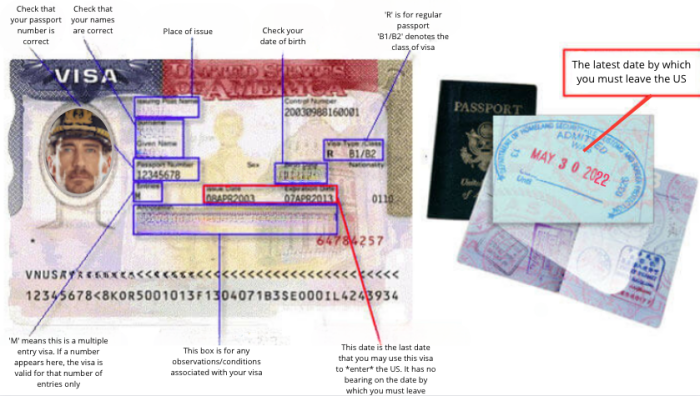
Navigating the visa application process often involves more than just the application form. Understanding the associated fees and potential additional expenses is crucial for a smooth experience. This section details the costs involved in obtaining a Finnish visa, highlighting differences between various visa types and potential extra charges.
Visa Application Fees
The application fee for a Finnish visa is a significant aspect of the overall cost. These fees vary depending on the type of visa and the applicant’s nationality. The amount is typically non-refundable and covers the processing of the application. Knowing the fee structure beforehand can help applicants budget effectively.
Additional Costs
Beyond the application fee, several additional costs might arise during the visa process. These expenses can include courier fees for sending documents, translation costs if documents aren’t in Finnish or Swedish, and potentially the cost of visa-related consultations if seeking professional assistance. It’s important to factor these potential extras into the total budget.
Comparison of Visa Fees
Different visa types have different application fees. For example, a tourist visa typically has a lower fee compared to a work visa, which often necessitates a higher fee reflecting the more complex assessment required. This variance reflects the different levels of scrutiny and processing involved.
Visa Fee Table
The following table summarizes the estimated application fees for various Finnish visa categories, along with potential additional costs. Please note that these are estimations, and actual fees might vary based on specific circumstances. Always consult official Finnish visa application websites for the most up-to-date information.
| Visa Type | Application Fee (EUR) | Other Costs (Estimated) |
|---|---|---|
| Tourist Visa | 30-60 | Courier fees (10-30), Translation (if needed 20-50) |
| Student Visa | 60-90 | Courier fees (10-30), Translation (if needed 20-50), Tuition fees |
| Work Visa | 90-120 | Courier fees (10-30), Translation (if needed 20-50), Employer costs, Visa consultation (if needed) |
| Family Reunification Visa | 60-90 | Courier fees (10-30), Translation (if needed 20-50), Supporting documents fees |
| Transit Visa | 30-60 | Courier fees (10-30), Translation (if needed 20-50) |
Processing Time and Duration: Visa Requirements For Finland
Navigating the visa application process can feel like a journey with uncertain timelines. Understanding the expected processing time for different visa types is crucial for planning your trip to Finland. Knowing potential delays and factors influencing the timeframe can help you prepare and avoid unnecessary stress.The Finnish visa application system, while aiming for efficiency, is subject to various internal and external factors.
The processing time for your application can vary significantly based on the specific visa type, the completeness of your application, and current backlogs at the processing center. Thorough preparation and timely submission are key to a smooth and swift application journey.
Typical Processing Times
The processing time for a Finnish visa application is not a fixed number. It depends on several variables, including the type of visa, the completeness of the application documents, and current processing volume at the visa application centers. The complexity of the visa type and the need for additional inquiries also plays a significant role.
Factors Affecting Processing Time
Several factors can influence the duration of the visa processing time.
- Visa Type: Different visa types have different processing requirements and complexities. Tourist visas, for instance, typically have shorter processing times compared to work or study visas, which may involve extensive background checks and verification procedures.
- Application Completeness: A complete and accurate application package is vital. Incomplete applications, missing documents, or discrepancies in information significantly increase processing time as the authorities must request missing information or clarifications.
- Processing Center Backlog: High application volumes at the processing centers can lead to longer wait times. During peak seasons or periods of increased demand, processing times can extend beyond the typical estimates.
- National Holidays and Public Bank Holidays: Finnish and other relevant government processing times are affected by public holidays. Processing may pause or slow down during these periods.
- External Factors: Unforeseen events, such as natural disasters or unforeseen circumstances in the applicant’s home country, might lead to delays in the application process. These delays may involve additional requests for information or documentation.
Possible Delays and Their Causes
Potential delays in the visa application process can stem from a variety of sources.
- Incomplete Applications: A common cause of delays is incomplete or inaccurate applications. This requires follow-up and clarification requests from the applicant.
- Supporting Documents Issues: Problems with supporting documents, such as inconsistencies or insufficient proof of financial resources, can also extend the processing time.
- Administrative Errors: Rarely, but possible, administrative errors within the processing center may cause delays in the application processing.
- Security Checks: For certain visa types, particularly those related to work or study, additional security checks may be required. These can add time to the processing duration.
Estimated Processing Times
The following table provides estimated processing times for various Finnish visa types. Keep in mind that these are estimates and actual processing times may vary.
| Visa Type | Processing Time (Estimated) | Factors Affecting Time |
|---|---|---|
| Tourist Visa | 10-20 business days | Application completeness, processing center backlog |
| Student Visa | 20-40 business days | Educational institution verification, financial resources proof |
| Work Visa | 20-60 business days | Employer verification, job offer authenticity |
| Family Reunion Visa | 20-40 business days | Relationship verification, family ties evidence |
Contact Information and Resources
Navigating the visa application process for Finland can feel daunting. Knowing where to find the right information and who to contact is crucial for a smooth experience. This section provides key contact details and resources to help you.Finding the correct contact information and official websites is essential for a successful Finnish visa application. It ensures you’re using the most up-to-date and accurate information, avoiding potential delays or errors.
Contacting the Finnish Embassy/Consulate
Accurate contact information is critical for visa applications. It allows you to reach the appropriate authorities promptly and efficiently. The exact embassy/consulate details will depend on your location. Always confirm the specific contact information for the embassy or consulate serving your area. Failure to do so could lead to delays or incorrect information.
Official Websites for Visa Information
Official websites are the most reliable sources for visa information. They contain the most current and accurate details about visa requirements, application procedures, and fees. The official Finnish Immigration Service website is your primary source for up-to-date information. Always double-check the details on the official site for the latest updates.
Finding Information on the Finnish Immigration Service Website
The Finnish Immigration Service website is the official source for all visa-related information. It provides detailed information on various visa types, eligibility criteria, application processes, and processing times. The site is structured to be user-friendly, with clear sections dedicated to specific visa types. For instance, a section dedicated to Schengen visas will have the specific requirements for that visa type.
Figuring out visa requirements for Finland can be a bit of a headache, but it’s totally manageable. Thinking about how a bus for the homeless to start touring Athens, as highlighted in this fascinating article bus for the homeless to start touring athens , really makes you appreciate the complexities of travel and the need for proper documentation.
Ultimately, understanding the visa process is key to making sure your trip to Finland goes off without a hitch.
You can often find detailed FAQs and downloadable forms on the website.
Helpful Websites and Resources
These additional websites and resources can offer valuable supplementary information and support during your application process. They provide a broader perspective and can clarify points not fully covered on the official websites.
- Finnish Immigration Service (official website): This is the primary source for all visa-related information. The site provides detailed information about visa requirements, application procedures, and processing times for various visa types. You can find specific information for different visa categories on this site.
- Ministry of Foreign Affairs of Finland (official website): This website provides general information about Finland, including contact details for embassies and consulates worldwide. It’s helpful for finding contact details if the Finnish Immigration Service website doesn’t directly list your specific embassy or consulate.
- Visa application support services (external): Various third-party websites or services might offer assistance with the application process. However, it’s crucial to thoroughly research these services to ensure they are reputable and trustworthy. Always verify their credibility and reliability before using them.
Important Considerations
Navigating the Finnish visa application process can feel daunting, but careful preparation and understanding potential pitfalls can significantly increase your chances of success. This section delves into crucial aspects to consider before submitting your application, including potential consequences of rejection, common mistakes, and valuable tips for a smooth process. Knowing these factors will empower you to make informed decisions and increase your chances of obtaining the necessary visa.
Consequences of Visa Application Rejection, Visa requirements for finland
Visa rejection can have various implications, ranging from the inconvenience of resubmitting an application to more serious consequences like travel restrictions. Understanding these potential outcomes is essential for planning ahead. A rejected application might temporarily restrict future visa applications or travel to Finland, depending on the specific circumstances of the rejection. In some cases, a rejection might indicate the need to provide further supporting documents or address specific deficiencies in your application.
Common Mistakes During the Visa Application Process
Errors in the visa application process can lead to delays or outright rejection. Accurately completing all sections of the application form is paramount. Common pitfalls include submitting incomplete or inaccurate information, providing insufficient supporting documents, or failing to adhere to the application deadlines. Another common mistake is not thoroughly reviewing all documents before submission. Even seemingly minor errors can trigger a rejection.
Carefully scrutinizing every detail and ensuring accuracy throughout the application process will increase the likelihood of success.
Tips for a Successful Visa Application
A well-structured application increases your chances of approval. Thorough preparation, accurate documentation, and adherence to the specified requirements are key. One critical tip is to gather all necessary documents well in advance of the application deadline. Start by carefully reading the official guidelines and instructions, ensuring you understand all requirements. Ensuring your application is complete, accurate, and submitted on time is essential.
Consider seeking professional assistance if you are unsure about any aspect of the process. Seeking advice from an immigration consultant or embassy representative can provide crucial guidance.
Important Points to Consider Before Applying
Before embarking on the visa application journey, careful consideration of several factors is crucial. These considerations will help you make informed decisions and avoid potential problems. First, understanding the specific purpose of your visit to Finland is critical. Are you visiting for tourism, work, or study? Different visa types have specific requirements.
Thoroughly research the requirements for the visa type you intend to apply for. The length of your stay also affects the necessary documentation and application procedures. Consider the financial resources you have to support your stay in Finland. Demonstrating sufficient funds is often a requirement. Ensure your passport is valid for at least three months beyond your intended stay.
Finally, ensure you have all the necessary documentation, including your passport, travel itinerary, proof of accommodation, and financial statements, to support your application.
Important Considerations Regarding Documentation
Thorough documentation is essential for a successful visa application. A crucial aspect of documentation involves providing evidence of your financial capacity to support your stay in Finland. This might include bank statements, sponsorship letters, or other financial documents. Furthermore, a detailed itinerary outlining your travel plans, including accommodation details, is essential. Ensure your passport has sufficient validity beyond your planned stay in Finland.
Official documents like employment contracts or educational certificates, if applicable, will be required. Remember to check the specific requirements for the visa type you are applying for, as requirements may vary.
Closing Notes
In conclusion, obtaining a Finnish visa involves careful consideration of visa type, eligibility criteria, and the application process. Understanding the specific requirements for your travel purpose, along with accurate documentation and adherence to deadlines, is crucial for a successful application. This guide provides a clear roadmap to help you navigate the process with confidence. Remember to consult official sources for the most up-to-date information.
